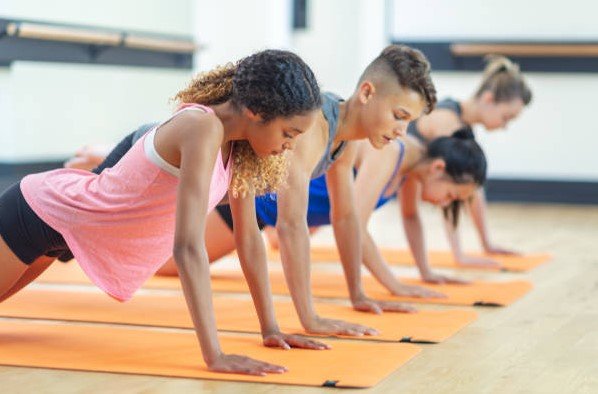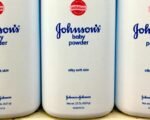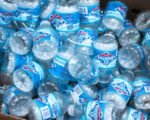Safety is your top priority when it comes to enhancing your workout performance as a teenager. In this analysis, we will examine into the potential risks and benefits of pre-workout supplements for individuals in your age group. It’s crucial to understand the implications of using pre-workout products on your developing body to make informed decisions about your fitness routine. Let’s explore whether pre-workout is a safe option for you as a teen.
Key Takeaways:
- Consult a healthcare professional: It is important for teens to consult a healthcare professional before using pre-workout supplements to ensure safety and suitability.
- Avoid stimulants: Teenagers should avoid pre-workout supplements containing high levels of stimulants like caffeine, as they can have adverse effects on developing bodies.
- Look for reputable brands: Teens should choose pre-workout supplements from reputable brands that undergo testing for safety and quality.
- Monitor side effects: Parents and teens should be vigilant in monitoring any potential side effects or negative reactions to pre-workout supplements and seek medical advice if necessary.
- Focus on a balanced diet: Instead of relying on supplements, teens should focus on maintaining a balanced diet rich in nutrients to support their athletic performance and overall health.
Potential Risks of Pre-Workout Supplements for Teenagers
Impact on Developing Bodies
Before you consider taking pre-workout supplements as a teenager, it’s crucial to understand the potential risks they pose to your developing body. The main concern is that these supplements often contain high levels of caffeine, creatine, and other stimulants that can have adverse effects on your still-growing body. Excessive consumption of these substances may lead to issues with your cardiovascular system, disrupt your hormonal balance, and even hinder your overall growth and development.
Psychological Effects
Teenagers, the psychological effects of pre-workout supplements can also be concerning. The high levels of stimulants found in these products can impact your mood, sleep patterns, and overall mental well-being. You may experience heightened anxiety, irritability, and even depression as a result of consuming these substances. It’s important to be aware of how these supplements can affect your mental health and seek guidance from a healthcare professional if you notice any negative changes in your behavior or emotions.
Impact on your mental health is just as important as the impact on your physical health when it comes to pre-workout supplements. Be mindful of how these products make you feel and prioritize your well-being above all else. Your mental and emotional health should always come first, so don’t hesitate to reach out for help if you experience any concerning symptoms while using pre-workout supplements.

Benefits of Pre-Workout Supplements for Teenagers
Increased Energy Levels
Levels of energy are crucial when it comes to having a successful workout session. Pre-workout supplements can provide you with an extra boost of energy to power through your exercises. With the demands of school, extracurricular activities, and social life, sometimes you may feel drained when heading to the gym. By taking a pre-workout supplement, you can increase your energy levels, improving your overall workout performance.
Improved Performance
Any teen looking to enhance their athletic performance can benefit from pre-workout supplements. These supplements often contain ingredients like caffeine, creatine, and beta-alanine, which can help improve endurance, strength, and focus. With improved performance, you can push yourself harder during workouts, leading to better results over time.
Benefits of improved performance extend beyond the gym – they can also positively impact your performance in sports or other physical activities. If you’re serious about improving your athletic abilities, incorporating a pre-workout supplement into your routine can give you that extra edge.
Guidelines for Safe Use of Pre-Workout Supplements by Teens
Consulting with a Doctor
An crucial step before incorporating any pre-workout supplement into your routine is consulting with a doctor. Your healthcare provider can evaluate your current health status, any underlying medical conditions, and medications you may be taking. They can provide personalized advice on whether it is safe for you to use pre-workout supplements and if there are any specific ingredients you should avoid based on your individual health needs.
Reading Labels and Ingredients
For safe use of pre-workout supplements, it is crucial to carefully read and understand the labels and ingredients. Look for transparent supplement brands that provide detailed information about the ingredients in their products. Pay attention to any potentially harmful substances such as excessive caffeine, artificial additives, or banned substances.
Ingredients such as caffeine, creatine, beta-alanine, and branched-chain amino acids are commonly found in pre-workout supplements. While these ingredients can provide benefits such as increased energy, enhanced performance, and muscle recovery, it is important to use them responsibly and within recommended doses. Excessive consumption of certain ingredients can lead to negative side effects and health risks, so always follow the recommended serving sizes and guidelines provided by the manufacturer.
Summing up
Taking this into account, it is crucial for you to consider the potential risks and benefits before deciding whether pre-workout supplements are appropriate for teenagers. While they may provide a temporary energy boost and improve performance during workouts, the long-term effects and possible dangers associated with certain ingredients cannot be ignored.
It is recommended that you consult with a healthcare provider or a nutritionist to determine the safest and most effective ways for teenagers to enhance their exercise routines. Ultimately, prioritizing a balanced diet, adequate hydration, and proper rest will contribute significantly to overall health and fitness goals without the need for potentially harmful supplements.
FAQ
Q: Is it safe for teens to take pre-workout supplements?
A: Generally, it is not recommended for teens to take pre-workout supplements due to the high levels of stimulants and other ingredients that can have adverse effects on growing bodies.
Q: What are the potential risks of teens using pre-workout supplements?
A: Potential risks include increased heart rate, high blood pressure, insomnia, anxiety, digestive issues, and dependency on the stimulants found in many pre-workout products.
Q: Are there any safer alternatives for teens to boost their workout performance?
A: Yes, safer alternatives for teens to boost performance include maintaining a balanced diet, staying hydrated, getting enough rest, and engaging in regular exercise to improve strength and endurance.
Q: Can pre-workout supplements have long-term effects on teens’ health?
A: Yes, regular consumption of pre-workout supplements by teens can potentially lead to long-term health issues such as heart problems, hormonal imbalances, and addiction to stimulants.
Q: How can parents and teens determine if a pre-workout supplement is safe to use?
A: It is recommended to consult with a healthcare professional or a registered dietitian before considering the use of pre-workout supplements to determine if it is safe and necessary based on individual health and fitness goals.















